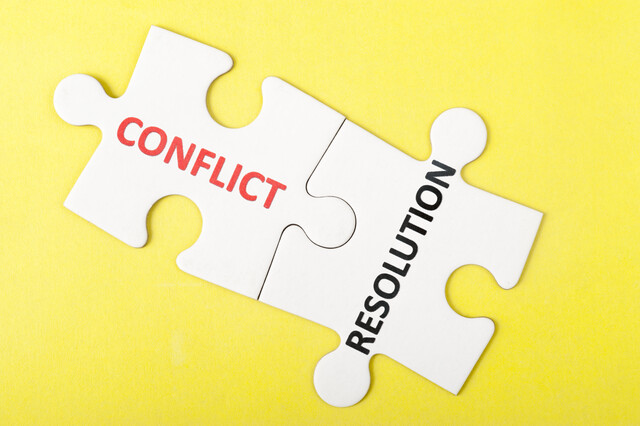|
Introduction |
The truth of the matter is that autism presents challenges for the entire family of an individual diagnosed with the disorder.
The parents, though, are the ones that always have to face myriad extra problems that others don't. In addition to all the normal pressures of parenthood, the parents of an autistic child have to deal with all the additional difficulties posed by autism.
It's important that all families with autistic children explore the different ways that are available to assist them in handling the stress that is brought to family life by the addition of an autistic child. Its better if all family members are involved in developing any solutions � not just the parents.
|
Understanding |
|
Autism presents a unique set of characteristics and difficulties which other disorders do not. Research actually shows that parents of autistic children suffer from a higher level of stress than do parents of children with Down Syndrome or other forms of mental retardation, and that the divorce rate in families with an autistic child is in the 80+ percent range � a truly horrifying statistic. |
|
Family Stress |
Families of children with autism may miss out on a number of normal family events -- especially at the beginning of the diagnosis -- since they are just far too daunting to attend with an autistic child. It means that one parent stays home with the autistic child, while the other goes to the event with any non-autistic children � or alternatively, no one goes at all.
Either course of action can lead to resentments and stress.
Additionally, parents find that they rarely seem able to spend any real quality alone time together: It's simply far too difficult to find anyone willing, or qualified, to care for the autistic child, as well as any others they may have. No "together" time, usually translates into more stress being placed on a relationship.
|
Sibling Issues |
Siblings of autistic children also face a unique collection of situations and stresses, starting with the fact that their parents (by necessity) spend more time with the autistic child than they do with them.
You cannot blame the non-autistic children for feeling left out sometimes; they may become very tired of hearing mom and dad say "later �" or "when I/we have time.... "
The very first thing parents need to do, is to teach the non-autistic siblings about autism in age-specific terms, as well as address any behavior-specific concerns that the non-autistic children might have in regard to their sibling.
Also, whatever you do, make sure there are times where the non-autistic child/children are the focus of attention. Spend time alone with each non-autistic child, even if it's only just a few minutes each day, or longer than that, a couple of times per week.
|
Extended Family and Friends |
Having your extended family members and friends come to terms with your child's autism diagnosis can be difficult at times. Some will remain in denial that the child is autistic at all, saying things like, "You just need to be more strict with him ... " etc.
Extended family can only be helpful to the extent that they can accept the diagnosis and actively support you. Sometimes grandparents and/or aunts and uncles don't accept your guidance and offer forbidden foods or other treats to the child. You may need to limit contact between them and the child until they arrive at an appropriate understanding of your position on the child's treatment.
Sometimes you simply won't get support from those you expect it from, no matter how much you want it. Other times, support will come from those very people you don't expect it from. It's not necessary for all family members to have to know about your child's autism diagnosis � especially if you rarely see them.
|
Safety and Security |
Added safety measures are required in any home where young children are growing up (especially in their very early years). But autistic youngsters will need safety measures for longer periods of time � possibly all their lives.
You also need to fully appreciate that children with autism sometimes engage in behavior that is not only dangerous to themselves, but also to others; for example, throwing and breaking things. Parents of autistic children also need to deal with the autistic child's curiosity, such as taking things apart.
A few "autism-proofing" ideas:
� Use locks.
� Rearrange any furniture that could be in an inappropriate place (e.g. that would facilitate climbing for an autistic child).
� Child-proof all electrical outlets with outlet covers.
� Utilize child safety gates.
|
Community Activities and Autism |
Being actively involved in the community benefits everyone � with research showing that community involvement actually extends life.
Community "involvement" doesn't just refer to a limited local area either, as it can just as easily be a reference to the national or global community as well.
Community interests are extensive and varied, involving such things as gardening groups, book clubs, church groups, community art classes, charity/fund raising groups, etc. Also, don't forget involvement in community programs extends the support structure of all who get involved.
Involvement with a community, usually begins with an activity of some kind or another. Remember that activity-based events are usually more successful in involving autistic people into the community than are socially-based events.
Encourage autistic children and adults to become involved within the autistic community itself (conferences, activities, etc.), but also encourage them to extend beyond to other, broader, communities as well.
|
You've had one autistic child; should you risk having more? |
The truth is that families with one autistic child have an increased risk of having another one with the disorder � there is no getting around this fact.
The reality is that ASD has a genetic component. Generally the chances of having a child with ASD is about 1 in 166, but once a couple have had a child with the disorder, their risk (in having subsequent autistic children) rises to between 1-in-50 and 1-in-12.
Some people and families cope very well with autistic children; others simply don't. The issue of having a second, or subsequent, child after the birth of an autistic child, can divide couples and whole families.
Therefore, the question of whether or not to risk having another autistic child is a very personal and private decision. But it's a decision that will shape not only the rest of your life but the rest of your family as well.
So, it's a decision that should be made slowly, calmly, and very carefully.
|
Planning and handling holidays with an autistic child or other autistic loved ones |
Organization and preparation are the two keys -- and at least a few months ahead, too. You need to "communicate," not only within your immediate family, but the people at your destination.
Always travel will toys, games, and food. On arrival, don't put too much into one day � or too much into one vacation, for that matter.
Also, always make plans that are flexible, so if your child has a rough day, you can just stop and relax.
Choosing the actual destination is an important factor, as well as checking whether any special amenities needed are available. Also, keep in mind those seemingly obvious things that are often forgotten about. For example, you don't go to a beach resort if your autistic child can't stand the feeling of sand between his/her toes! The selection of the right accommodations is also very important, as you may very well end up spending heaps of time indoors there � so don't economize on the wrong things.
Never forget to pack that most important ingredient of all � your sense of humor!
|
Coping with Stress |
It's crucial that the parents and family of an autistic child find ways to deal with the stress that an autistic child brings to that family. A few suggestions:
Parents
- Take time for yourselves. Maybe it's only a few minutes each day as "me" time, but it's a necessity for both Mom and Dad.
- Make some "together alone" time to spend with your partner/spouse, even if it's only watching some TV or a DVD together after the kids have gone to bed.
- Take time to pray and/or meditate, even if it's only 10 minutes a day.
- Exercise.
- Journal or put your thoughts (and frustrations) on paper; again, even if you can only snatch a few minutes each day, that's enough.
- Consider counseling.
Siblings and/or the family as a whole
- Participate in family activities without the autistic child once in a while.
- Say thank you to the autistic child's brothers/sisters for their help with their autistic sibling.
- Connect with other families that have autistic family members.
- Check out programs that offer help to families with autistic children
|
Overcoming isolation |
A child with the special needs that autism demands can turn your life completely upside down for quite a while. This is just the way it will be at the beginning of the journey, and it will be easier for you if you realize that.
Remember to take those breaks for yourself along the way. While your child's therapy is important -- you are also very important.
The autism community will most probably occupy the majority of your time for a while. Accept that and there will be much less isolation, more involvement, and more company from others.
|
Autism � anxiety and nightmares |
Selective Serotonin Reuptake Inhibitors (called SSRIs) are the particular type of antidepressants used to lessen anxiety in people with autism.
Although many people do not like giving drugs to children, let alone for a continued period of time, children with autism can be debilitated by anxiety, which in turn greatly impacts their functioning ability.
Sometimes it simply comes down to the greater need. The drugs are expensive, though, and often insurance companies do not cover autism-related medical expenses, so the wording your doctor uses when coding the medication can end up being quite important.
|
Reconnecting with the community |
(see "Community Activities & Autism," above)
Of course, it is always better if you maintain your community involvement, but if you (and/or your family), have isolated yourself to some degree due to the autism diagnosis, the answer is simply to reach out once again and become involved.
Take it slowly at first, step-by-step, so you don't over commit either yourself or your family.





















